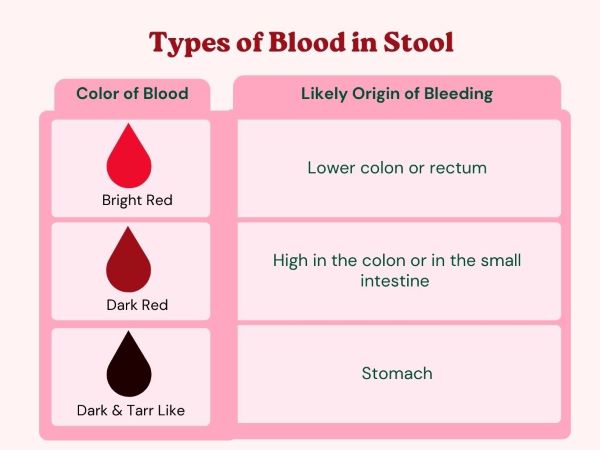
Blood in stools, also known as rectal bleeding, can occur from various underlying causes, ranging from benign to chronic.When should you worry about blood in stools?Here's a comprehensive guide to help you find this concern.First it's essential to differentiate the nature of the blood in your stools. Bright red blood typically indicates bleeding in the lower digestive tract, possibly from Hemorrhoids or Anal Fissures.Dark, tarry stools might be due to bleeding from upper digestive system, potentially originating from the stomach or small intestine.
While occasional instances of rectal bleeding might not necessarily warrant alarm, certain red flags demand prompt attention.When you should worry about blood in stools?Consider the following warning signs:
1. Depending on the cause your doctor may prescribe medication like antibiotics,anti-inflammatories,or medication to supress acidity are commonly prescribed to stop rectal bleeding.Surgery is recommended to repair gastrointestinal tract abnormalities.
2. Change in diet - eating lots of high fibre foods, Haemorrhoids cream, warm Sitz-Bath 3 to 4 times per day, Over the counter pain medications such as paracetamol recommended. Contact Padma Hospital for Blood in Stool Treatment in Miyapur.
Occasional instances of rectal bleeding, particularly when associated with minor conditions like hemorrhoids, might not be abnormal. However, persistent or recurrent bleeding should prompt medical evaluation.
Blood in stools can result from various factors, including hemorrhoids, anal fissures, inflammatory bowel disease, diverticulitis, colorectal polyps, or even colorectal cancer. Determining the underlying cause typically requires medical assessment.
Differentiating between benign and serious causes of rectal bleeding often hinges on factors such as the color and consistency of the blood, accompanying symptoms, personal medical history, and family history of gastrointestinal disorders or cancer.
Yes, it's advisable to seek medical attention for rectal bleeding, especially if it's persistent, recurrent, or accompanied by concerning symptoms such as abdominal pain, changes in bowel habits, or unexplained weight loss.
Yes, hemorrhoids, which are swollen blood vessels in the rectum or anus, can indeed cause blood in stools. However, while hemorrhoids are a common and usually benign cause of rectal bleeding, it's essential to rule out other potential causes, especially if the bleeding persists or recurs.
Colorectal cancer can indeed manifest as rectal bleeding, among other symptoms. While many cases of rectal bleeding are due to benign causes, it's crucial not to dismiss the possibility of colorectal cancer, particularly in individuals over the age of 40 or those with relevant risk factors.